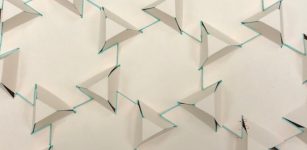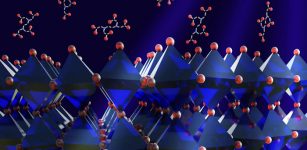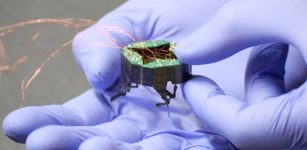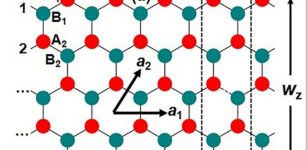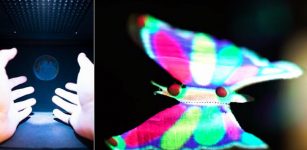Artificial Intelligence Helps Researchers To Develop ‘Invisibility Cloak’
Eddie Gonzales Jr. – MessageToEagle.com – Metamaterials are artificial materials engineered to have properties not found in naturally occurring materials and they are best known as materials for the ‘invisibility cloak’ often featured in science fiction games and novels.
By precisely designing artificial atoms that are smaller than the wavelength of light and controlling the polarization and spin of light, new optical properties are made that are not found in nature.
 These are schematics of and artificial neural network that can design structural parameters and material simultaneously. When desired optical properties (electric/magnetic dipole spectrum) is inputted, each thickness and types of materials of the three-layer core-shell nanoparticle are provided as output. Credit: Postech
These are schematics of and artificial neural network that can design structural parameters and material simultaneously. When desired optical properties (electric/magnetic dipole spectrum) is inputted, each thickness and types of materials of the three-layer core-shell nanoparticle are provided as output. Credit: Postech
In order to obtain the right material, numerous attempts and failures are required; however, AI is expected to provide a solution for this problem.
Researchers Prof. Junsuk Rho, Sunae So and Jungho Mun of Department of Mechanical Engineering and Department of Chemical Engineering at POSTECH just recently developed a design with a higher degree of freedom which allows to choose materials and to design photonic structures arbitrarily by using Deep Learning.
AI can be trained with a vast amount of data and it can learn designs of various metamaterials and the correlation between photonic structures and their optical properties. Using this training process, it can provide a design method that makes a photonic structure with desired optical properties.
Prof. Rho and his group educated AI to design arbitrary photonic structures and gave additional level of freedom of the design by categorizing types of materials and adding them as a design factor, which made it possible to design appropriate materials for relevant optical properties. The results revealed that it had identical optical properties inputted in the artificial neural network.
“Our research was successful in bringing it to a higher degree of freedom of the design, but the new design still requires users to input certain problem settings in the beginning,” Prof. Junsuk Rho, Sunae So and Jungho Mun of Department of Mechanical Engineering and Department of Chemical Engineering at POSTECH, said in a press release.
“It sometimes produced wrong designs and therefore make it impossible to produce desired metamaterials. So, I’d like to take our findings a step further by developing a complete design method of metamaterials utilizing AI. Also, I’d like to make innovative and practical metamaterials by training AI with reviews of the design constructed in consideration of final products.
Written by Eddie Gonzales Jr. – MessageToEagle.com Staff


